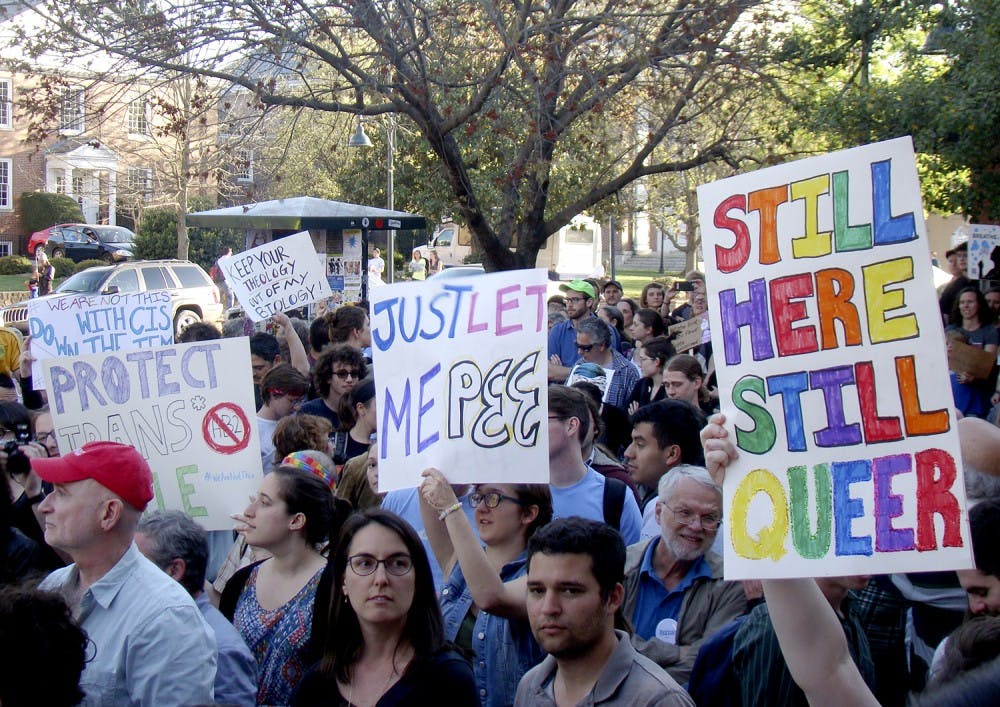This number incorporates outside organizations’ continued withdrawal of bookings for conferences, trainings and workshops. In January 2017, the AAU STEM conference, which would have brought an estimated $200,000 to the area, contacted the College of Arts and Sciences to say the event would be moved because of the law, Griffin said.
The total also includes revenue lost due to the travel bans placed on North Carolina by six states and 17 cities.
However, businesses are becoming more aware of the impacts of people and organizations who decide not to consider North Carolina as a destination at all.
“There is a great number, that we will never know, of people who have just written us off,” said Meg McGurk, executive director of the Chapel Hill Downtown Partnership.
The law caused many businesses and events to leave the state, including ACC and NCAA Tournament games, taking their fans and valuable economic revenue with them.
“North Carolina has been this cool, up-and-coming state for so long,” said Janet Elbetri, owner of Sandwhich. “Suddenly we’re not cool anymore.”
Flyleaf Books in Chapel Hill is one business that has noticed this trend.
An author visiting the store last week asked owner Jamie Fiocco to include in her introduction the fact that she seriously considered not coming to North Carolina because of the bill. Fiocco fears that there are other authors and artists out there who underwent the same deliberation, and in the end decided to bypass the state.



